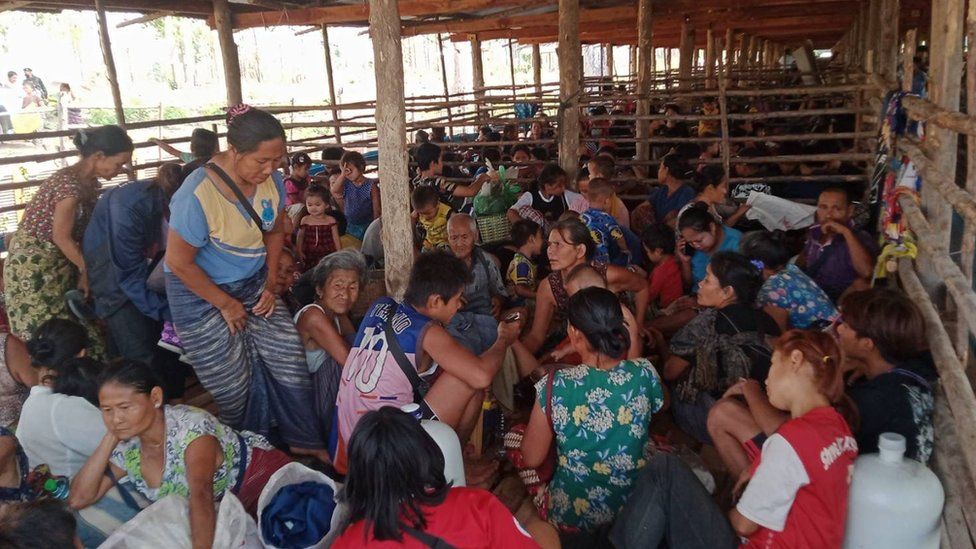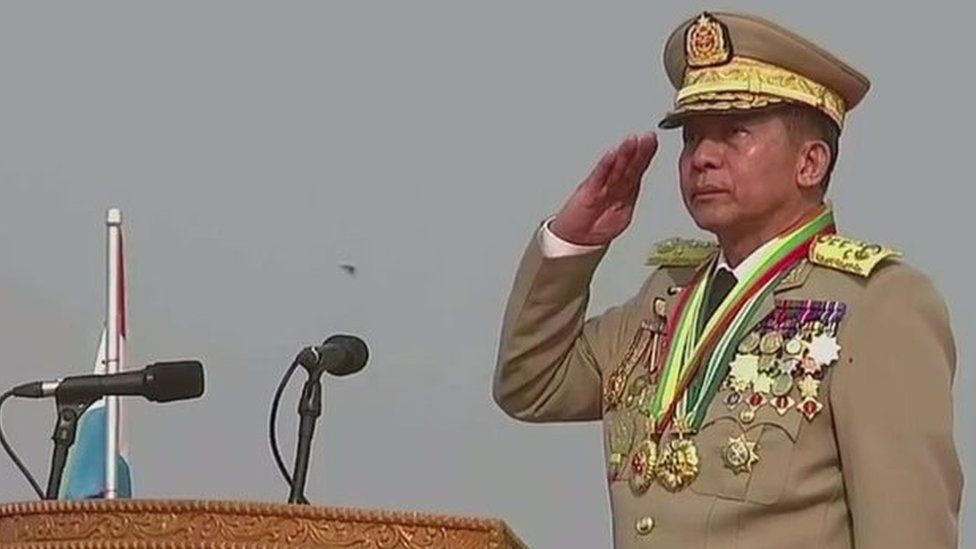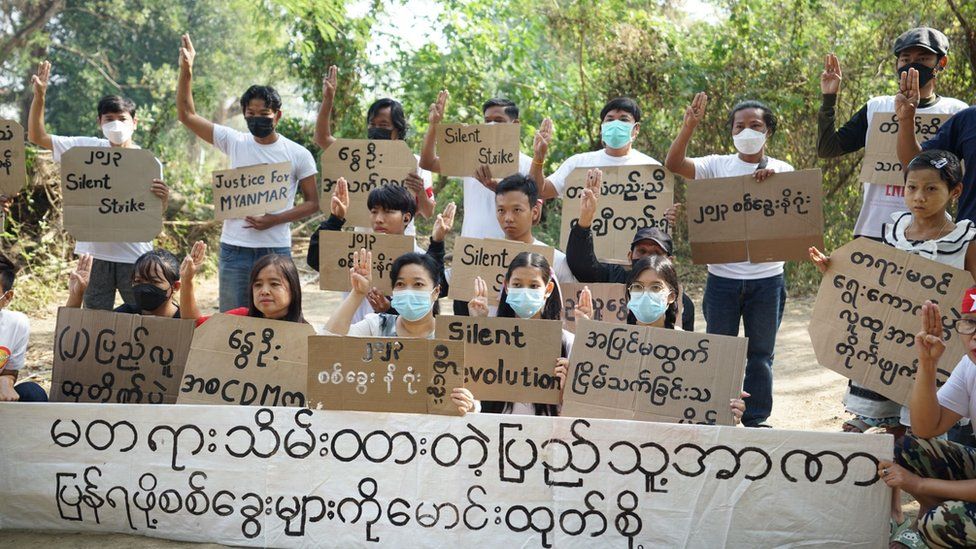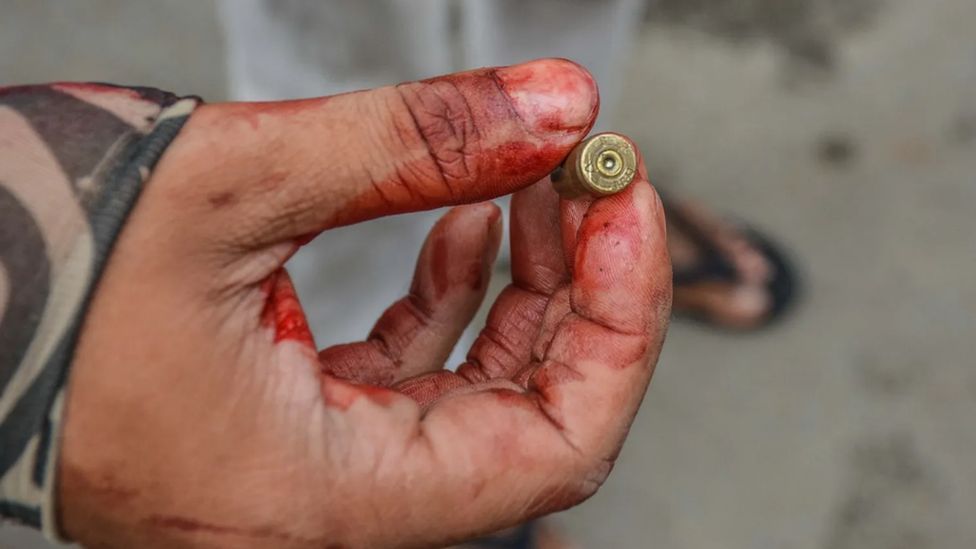
Some 10,000 Burmese people have fled to Thailand to escape fierce fighting between the military and a powerful ethnic armed group since Wednesday, Thai authorities said.
They are fleeing from Shwe Kekko town, controlled by a military subdivision and home to Chinese-owned casinos.
The exodus is one of the largest since the military toppled Aung San Suu Kyi’s elected government two years ago.
The military has not released a statement yet about the fighting.
It is the latest in a civil war that has dragged on since the coup in February 2021. Two years on, the military government has failed to impose its authority on large areas of the country. It is battling anti-coup militias or People’s Defence Forces (PDFs) as well as ethnic armed groups in areas that have been at war with the military for decades.
More than 3,200 people have been killed and some 1.4 million have been displaced since the coup. Nearly one third of the country’s population is in need of aid, according to the United Nations.
The latest round of fighting intensified after the Karen National Liberation Army (KNLA) and its allies launched attacks on military outposts and a gate camp near Shwe Kokko on Wednesday. Some 85 people have died on both sides, KNLA told BBC Thai.
Aid workers in the border regions – Thailand’s Mae Sot and Mae Ramat areas – have called for urgent humanitarian aid as refugees seek shelter in schools, monasteries and rubber farms.
“Only Burmese people who arrived earlier made donations like rice, canned fish and noodles for now. In the long run, we need more donors,” said Kay Thi Htwe, a Burmese volunteer at a monastery in Mae Sot, which is hosting 500 refugees.
The KNLA has also shut down the Myawaddy-Kawkareik Asia highway – one of the main roads along the border – for two weeks starting Friday.
Back in Shwe Kokko, the Border Guard Forces, controlled by the Myanmar military, are guarding the casinos and telling residents to stay indoors.
This comes as the military continues to crush civilian resistance, targeting schools, clinics and villages.
Earlier this week, the military said it had arrested 15 teachers who worked with the rival National Unity Government (NUG) to teach online classes.
The teachers were arrested from their homes in Mandalay, Saigang and Magway, a member of the General Strike Committee of Basic Education Workers told the BBC. In July, about 30 teachers were reportedly arrested because they worked for an NUG-recognised online school.
From the start, education has been a battleground in Myanmar. Teachers were among the first, along with health-workers, to walk out in protest against the coup, and were in the front line of the huge protests called by the Civil Disobedience Movement in the first weeks after the military takeover.
When that was crushed, most still refused orders by the military junta that they should return to work, and in May 2020 around 150,000 teachers and university lecturers were dismissed from their jobs. Many decided to go underground, joining schools and clinics in areas where communities had begun an armed struggle against military rule.
The military views the establishment of independent schools and clinics as an existential threat. Official figures suggest the number of students taking the 10th grade matriculation exam in state-run schools is now only one fifth of the number doing so before the coup. Teachers working outside the state sector have been branded as terrorists.
Additional reporting by BBC Thai

Read more of our coverage on the civil war in Myanmar
- Devastation from the air in Myanmar’s brutal civil war
- The deadly battles that tipped Myanmar into civil war
- ‘If I get the first shot, I will kill you son’
- Myanmar’s former soldiers admit to atrocities
- She treated the resistance, and paid with her life
- Street tales from Myanmar: ‘Take care of our baby if I die’




